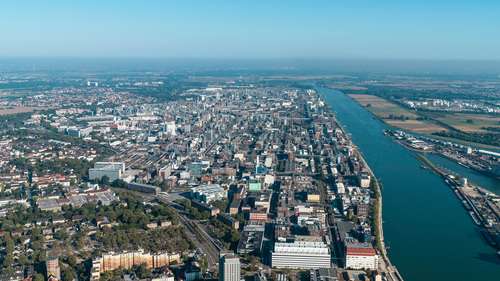BASF expands and modernizes phenolic resin production in Ludwigshafen
BASF is expanding and modernizing its production facility for its Koresin branded phenolic resin at its Ludwigshafen Verbund site. The company will increase the product capacity by 50 %. As a key measure, a second production line is being built and is scheduled to start operations in 2014. Used as a tackifier, Koresin plays a key role mainly in premium tire manufacturing processes.
“We are modernizing and expanding our Koresin facility to meet our customers’ increasing demand also in the future,” said Dr. Axel Kistenmacher, Business Manager Rubber Intermediates, BASF Intermediates division, and added, “We are additionally improving supply reliability by setting up a second production line.” Apart from car and truck tires, Koresin is also used to manufacture aircraft tires and tires for agricultural vehicles. Other applications include abrasion-resistant belt conveyors for heavy loads.
In tire production, various layers based on different rubber mixes are combined prior to the process of vulcanization. Small quantities of Koresin are sufficient to ensure homogeneous adhesion and crosslinking of the different tire components. At the same time this makes the end products safer and more durable. The use of Koresin facilitates advance production of traditional as well as modern high-silica rubber formulations, enabling them to be stored and transported for a long period. This eases time constraints in consecutive process steps and allows for greater flexibility in production. BASF has been producing Koresin from acetylene and t-butylphenol at its Ludwigshafen Verbund site for more than 70 years.
In addition to Koresin, BASF offers further products that are used in the tire and rubber industries: tertiary butylamine (tBA) and morpholine. Both of them are key raw materials for the manufacture of vulcanization accelerators.
Categories
Investments
Chemical substances
Countries
Latest news
INEOS launches €250m investment supported by the French Government to secure the future of French industry at Lavera
The project marks the first phase of a long-term regeneration plan to reduce emissions, boost reliability, efficiency and competitiveness, with support of the French State.
Hycamite’s technology to decarbonize shipping awarded AiP by industry leader DNV
Kokkola Industrial Park →Hycamite’s proprietary Thermo-Catalytic Decomposition (TCD) technology offers a new approach to producing clean hydrogen by breaking down methane, the primary component of liquefied natural gas (LN...
Clariant catalysts will power the Ecoplanta: Europe's first waste-to-methanol plant
Chemmed Cluster Tarragona →Repsol is building Europe’s first plant to produce renewable methanol from urban waste The facility will use Enerkem gasification technology to produce 240 KTA of methanol Clariant will supply cata...
Lilly plans to build a new $3 billion facility to boost oral medicine manufacturing capacity in Europe for patients worldwide
Netherlands site will bring 500 manufacturing and 1,500 construction jobs while further strengthening Lilly's global supply chain
